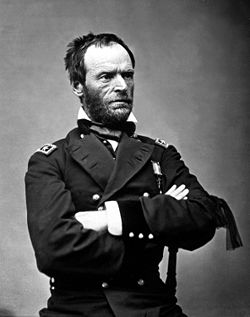In 1867, a peace commission
was dispatched by lawmakers in Washington to report on the
condition of the plains Indians. The commissioners,
including generals Harney and Terry, were assisted by Pierre
deSmet, and met with chief's Gall, Red Cloud, and Sitting Bull,
among many others.
click here for more
The
commissioners reported back to Congress, "Here our civilization
made its contract and guaranteed the rights of the weaker
party. We did not stand by those guarantees. The
treaties were broken, but not by the savage." In other words,
as treaty scholar Paul Prucha has written, "The treaty process had
developed into a "convenient and accepted vehicle for accomplishing
what United States officials wanted to do."

Pressures from
the Indian Office forced Congress to ratify the Medicine Lodge
treaties in 1867, but on July 27, 1868, Congress turned against the
peace commission. Appropriating $500k to implement the
treaties with the plains tribes, Congress specified that the funds
be spent under the direction of Sherman. In other words, said
historian S.J. Killoren, "Congress handed the Plains tribes over to
the army."
General
Sherman's (right) approach to managing the tribes was Big Stick
diplomacy coupled with threats of force. When a few Cheyenne
and Sioux went on the Smokey Hill trail, Sherman declared: "No
better time could possibly be chosen than the present for
destroying or humbling those bands that had so outrageously
violated their treaties and begun a desolating war without one
particle of provocation... I will solicit an order from the
President declaring all Indians who remain outside of their lawful
reservations to be declared 'outlaws,' and commanding all people -
soldiers and citizens - to proceed against them as such."
Sherman and
Sheridan agreed on a winter offensive, and "like Georgians and
Virginians four years earlier, the Cheyenne and Arapahos would
suffer total war." Sherman wrote to Sheridan that he had his
full support, and if the winter campaign "results in the utter
annihilation of these Indians, it is but the result of what they
have been warned again and
again."
Sherman's views
of Indian country were expressed in his annual report to Congress -
"they must necessarily yield," a haunting echo of President
Jackson's words spoken thirty years earlier. The peaceful
coexistence promised in the 1851 Horse Creek treaty was now viewed
as a pipe dream. President Grant's attitude toward Indians
was, in the beginning, very similar to Jackson's: "Even if it meant
the extermination of the race, the Great Plains were to be secured
for emigrants." But that attitude would change with his peace
commission.
By the fall of
1868, the peace commission was completely dysfunctional as a
governmental entity. Taylor, the president of the commission,
was faced with a mutiny. Nobody, including the president of
the U.S., wanted to promote a peace program.
Proposals of
Sherman, Harney, and Terry were carried over the dissenting votes
of Commissioner Taylor and Tappan. Sherman's policy of "peace
within the reservations, war without," were accepted strategies for
going forward. Before the commission adjourned Sherman
concluded his power sweep by resolving that Taylor, as spokesman
for their group, should transmit the commission's resolutions to
Grant, including the recommendation that "the Bureau of Indian
Affairs be transferred from the Interior Department to the War
Department."
Indian
Commissioner Taylor submitted his annual report with a searing
rejoinder of Sherman's last demand: "If you wish to exterminate the
race, pursue them with the ball and blade; if you please, massacre
them wholesale, as we sometimes have done; or, to make it cheap,
call them to a peaceful feast, and feed them on beef salted with
wolf bane; but, for humanity's sake, save them from the lingering
syphilitic poisons, so sure to be contracted about military
posts."
"The passing
through their country of a continuous stream of emigration,
dispersing or destroying the buffalo, is one of the causes of great
discontent and suffering with them," he went on. "Treated
thus, and no adequate compensation being made to them for what they
have yielded up or lost, their resources of subsistence and trade
diminished, with starvation in the future staring them in the face,
the wonder is that there prevails any degrees of forbearance on
their part, with such provocations to discontent and
retaliation."
Sherman instructed Sheridan to chase down the wandering tribes and
"prosecute the war with vindictive earnestness until they are
obliterated or beg for mercy." His orders were followed
by a young colonel named George Custer, who, almost four years to
the day after Sand Creek, wiped out Black Kettle's peaceful camp of
women, children, and old people, in a massacre at the Washita
River. The Indian Wars had begun.
Related People
Related Flashpoints